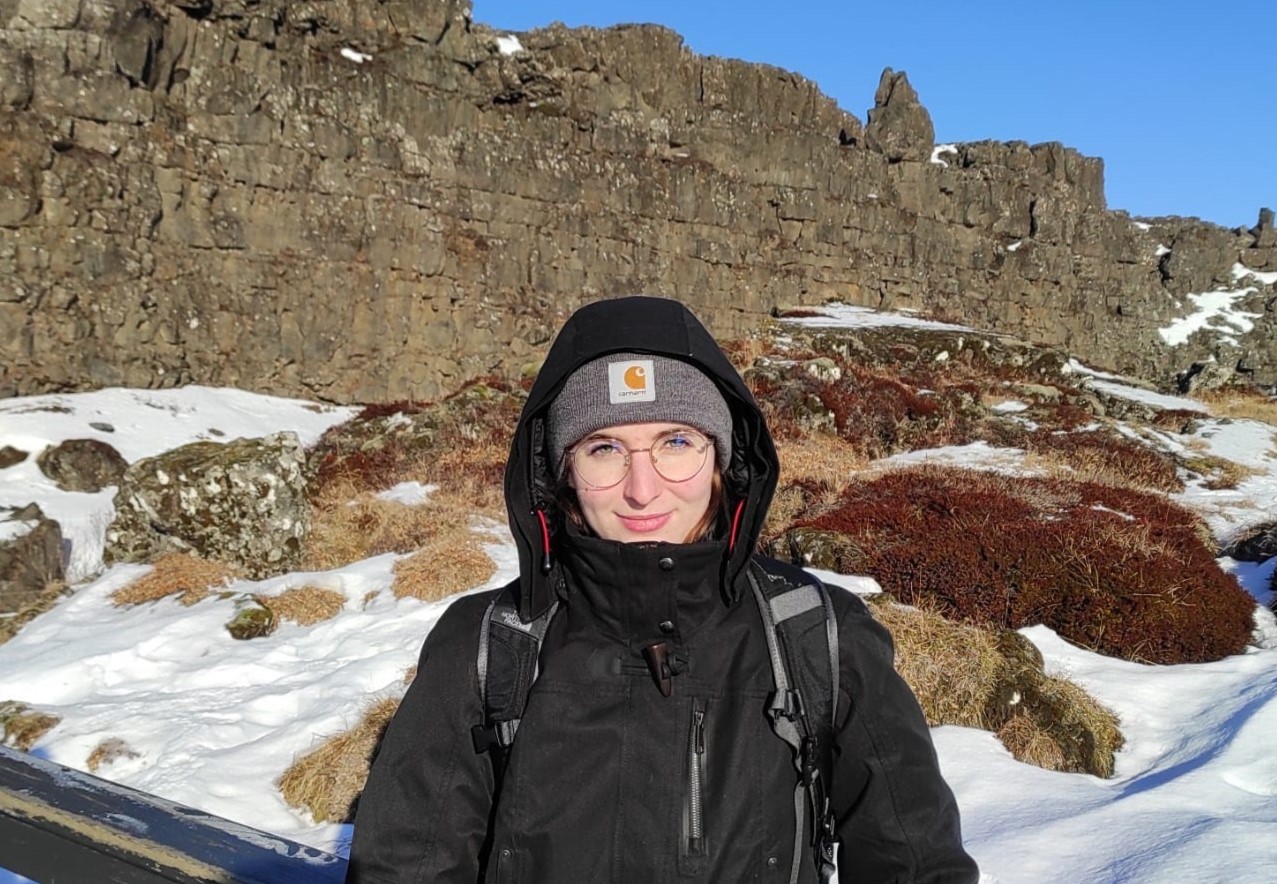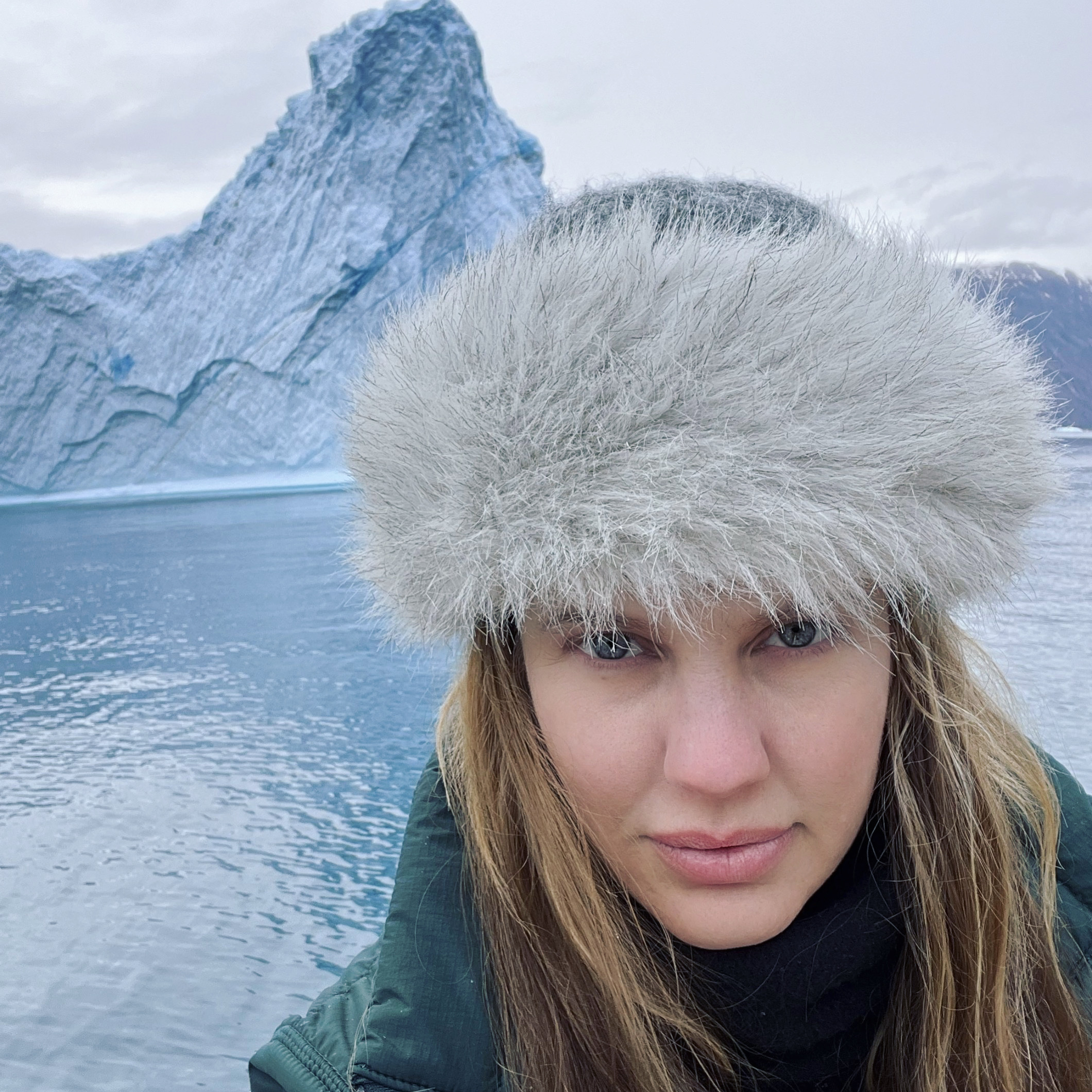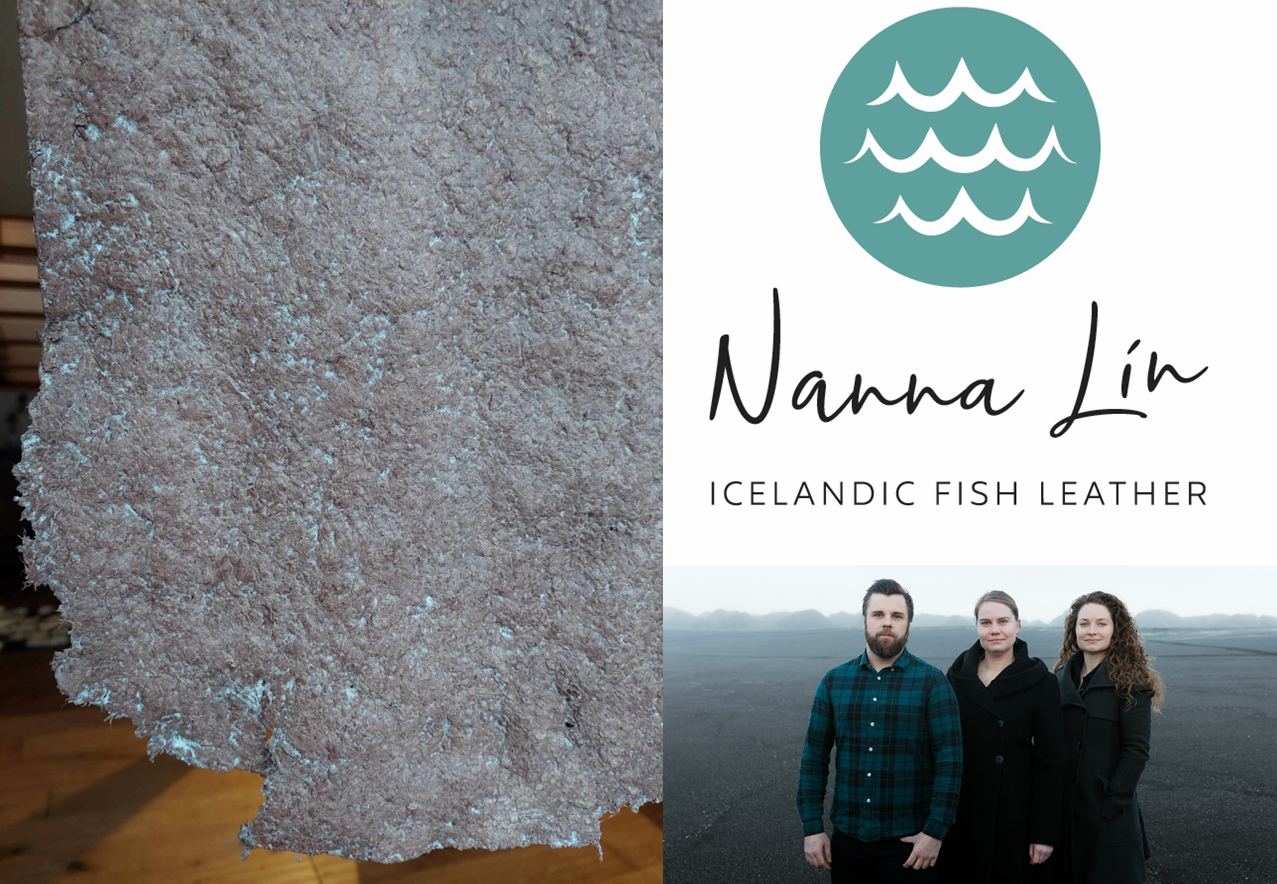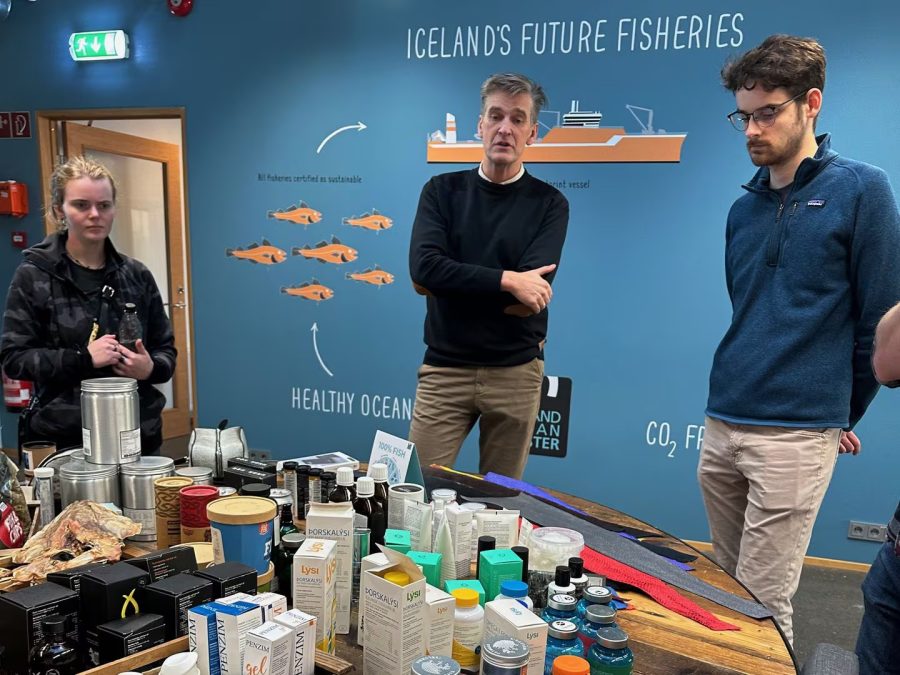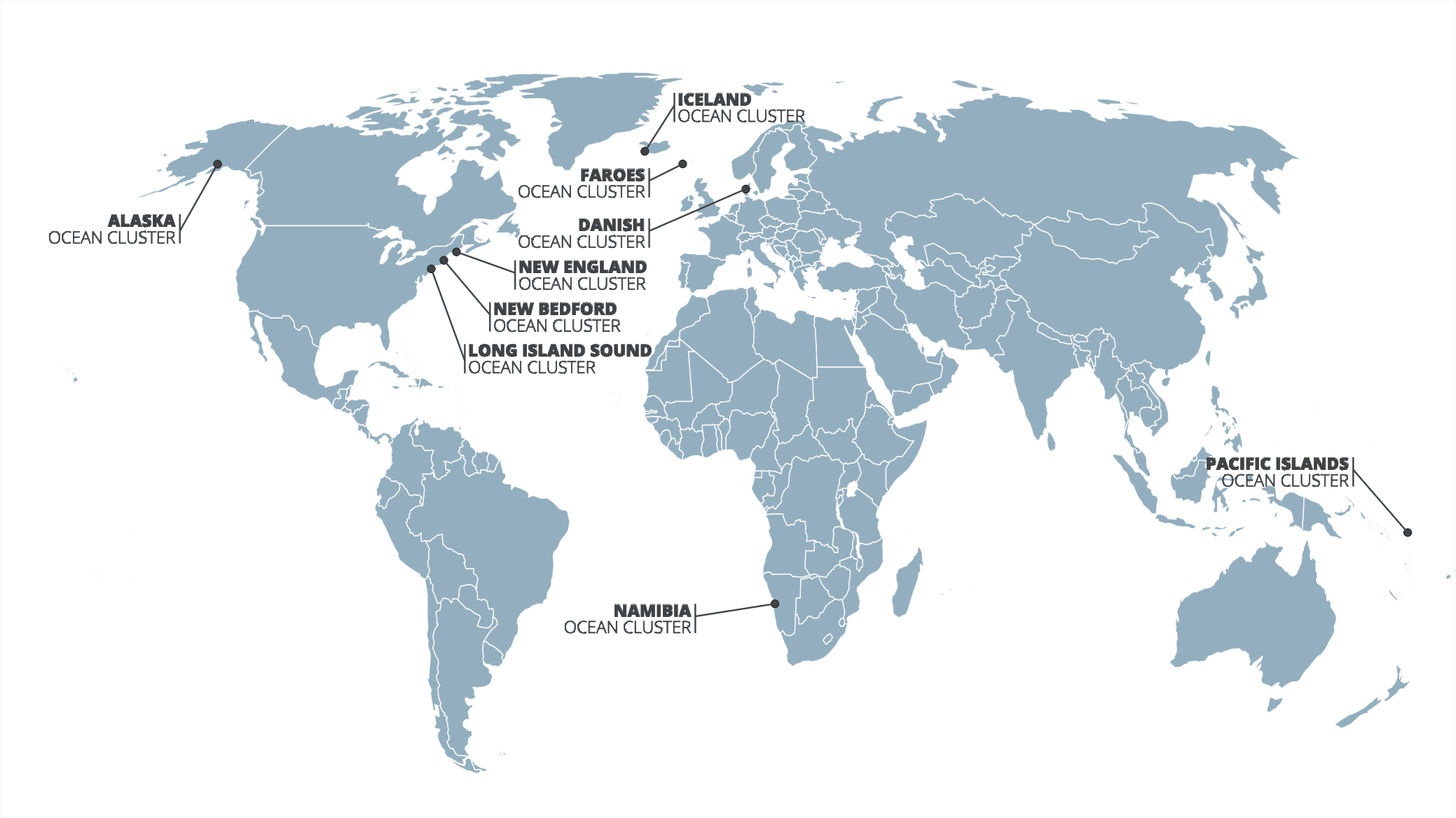Thor Sigfusson
Iceland Ocean Cluster
Keynote speech at the Ocean Smart Workshop in Ireland July 5-6 2011
Ladies and gentlemen
According to a genetic research done by Icelandic and British researchers at Oxford University, 63% of women settlers in Iceland and 20% of men had Celtic origin. The strong connections between Ireland and Iceland are also evident in names of places in Iceland such as Bekansstaðir (Beccan), Njálsstaðir (Nial) og Írafell (Irish Mountain). This strong mutual heritage opens further doors for cooperation which can be an opportunity, not least in ocean related affairs which is what I will address today.
Iceland‘s ocean economic zone encompasses a wealth of natural resources. The Icelandic economy is one of the most seafood dependent economies in the world with 1.5% of the global marine harvest. This means that per capita catch is nearly 4 thousand kilo of fish per person each year.
Another important factor to consider when observing the Icelandic seafood sector is that Icelandic industry has not been sponsored by Government, the fisheries sector has for the most part been profitable and large and profitable firms are operating which extend their activities into various markets around the globe. We have never considered our seafood business as a „welfare package“ or a „problem“ as many European countries and the European Union have treated this sector – with bad management and significant government support. It has never been an option for the Icelanders. This is a very important issue to raise as it has probably had more influence on our marine high tech sector than anything else. The Icelandic quota fisheries management system has become well known globally for its efficiency and it has been shown to increase profitability and led to a sustainable fisheries management which is now showing postivive results as the cod stock for instance is strengthening in our seas different from many other regions. The Icelandic marine industry operate globally seafood firms, high tech firms and trading firms which employ between 25-30 thousand people or triple the number of people working in the marine business in Iceland. Fisheries are not an embarresment for Iceland – but our strength which we build on to expand into emerging areas linked to seafood which require intangible resources.
How does Iceland utilise its strength to become world leader in high tech seafood?
I want to elaborate further on how Iceland has utilised its strength in the seafood industry to develop high tech industry, mainly in the food tech business, omega development but also in areas such as ICT. We could say that our strength and competitive advantage in fisheries has resemblance to Ireland‘s competetive advantage in the ICT in the sense that we build our core competence on strength of domestic industry. Here an interesting comparison can be made between Iceland and Ireland. We base our business on extending our classic natural resources with intangible resources while the Irish focus on emerging fields.
In the last two years I have had the opportunity to interview extensively high tech entrepreneurs in Iceland in the marine sector. One of the most interesting findings is that these entrepreneurs have all benefited from demanding domestic client base, most of them have their roots in the seafood industry and have developed technology – most often a combination of hardware and software solutions – mainly for the seafood industry, aquaculture and shipping – from ICT technology in fleet management to new types of fishing gear. Iceland has 70 high tech marine firms which all offer some products, many of them niche products, on the global marine market. Some of these firms have become world leading firms in high technology food manufacturing equipment as Marel, the second largest manufacturer of poultry and fish processing technology in the world and Hampiðjan, one of the largest fishing gear manufacturers in the world.
Influential factors behind success and failures
The marine high tech sector has grown considerably in Iceland in the last ten years. The pictures show how we have seen a number of small high tech firms grow in the last 9-10 years – many are still small but our obsrrvation this year indicates that many of these firms have a record year so far in 2011, growing by 20-30% compared with last year. These firms are driving the growth in the marine sector in Iceland.
There are both influential factors behind the success of the high tech firms in our small country and behind the failures as well. Lets begin with the success factors.
Our findings have indicated that the most influential factor behind the high tech success and the driving force of innovation is that there is world class demand at home and profitable firms willing to invest. This does not sound very new to economists as the basic for all successful industries is that there exist profitable firms willing to invest and take risk! Icelandic fisheries have. The fishermen themselves wanted the best available technology. This is a matter of „mindset“ and culture. We find a very different attitude in many other countries we compete with. The same high tech entrepreneurs present their world class high tech products in different regions across the Atlantic and often the reply from their potential customers is: „No thanks, what we have is good enough.“ According to the high tech entrepreneurs, this has not been the case in Norway and many parts of Canada but they have witnessed this in various European countries, even in the UK.
Other success factors are related to our culture of trust. Similar to our neighbors in Northern Europe, we proudly have built a society of trust, where transaction costs are therefore relatively low – trust and commitment is relatively easily established in the small societies.
The failure factors which we have identified have been in the global marketing. The problem in the marine sector worldwide is that there are not many sectors which have been profitable and there are many countries with huge „blind spots“, meaning they dont realise the opportunities within the marine sector and they, both industry and government, are stuck in old ways of doing things. As the Icelandic tech firms expand abroad, they realise that bad business does not invest in new equipment. This has been a hurdle for the growth of these firms. A successful Icelandic entrepreneur in fisheries bought a fishing and fish processing firm in a developed country in South America, only to realise that when he was installing „the technology“ in the boats that many of the fishermen could not read! This is surely not to generalise a whole region but shows the difficulty in introducing high tech in different cultures.
The other „failure“ I have researched is the lack of networking among the high tech entrepreneurs in Iceland. There are lots of small firms, as each circle represents a high tech firm on this picture, but they are not connected.
Icelanders tend to feel as they know everybody else on the small island and even though they don‘t know them, they can still give them a call. The problem with this attitude is that people are not making the call, and if they don‘t, new ideas are not exchanged. The tech entrepreneurs had very limited network between them. They were all in the high tech marine sector but were mainly relatively isolated – had good relations with their few and strong clients at home but limited network among their peers and globally. Here is also probably the reason why we have not seen more mergers among the small high tech firms. This is one of the reason why the Iceland Ocean Cluster project was initiated earlier this year, is to establish better network between the small high tech firms.
We arranged a meeting with over 20 CEO‘s of the high tech marine firms. The first thing we noted is that they began to introduce themselves to each other. Many had never met. I also noted that the meeting soon began to cover sales and marketing. Many of these firms are small and they have had difficulties marketing their products globally, not least in Asia where there is huge potential. The meeting indicated the great possibilities further networking among them could offer. A manager of a fishing gear manufacturer told the group, he was on his way to Russia to meet a large client they had been doing business with for over three years. When he mentioned the name of the Russian seafood company, a CEO of a high tech marine firm, said that he had been trying to get in contact with the Russian company for several years. “I’ll introduce you”, replied the fishing gear manager. There was a valuable connection made which could have been activated much earlier if people would have made the call earlier!
The volume driven society and R&D
The economic downturn in Iceland and the crash of our financial system, volcanic eruption etc. have obviously affected the high tech industry in Iceland like most industries. But we cannot blame these shocks for our lack of focus on emerging sectors in the ocean related businesses – that has a longer history than the last few years. We are in the middle one of the most resourceful seas in the world but we have been suffering from resourceblindedness; there have been so rich fish resources through the centuries that we are partly blinded by them and not do realise the variety of new opportunities in our oceans. This is best seen in the ongoing fisheries management debate in Iceland where the lens is stuck at who should catch the limited resources of fish – rather than asking how we expand the intangible resources associated with the utilisation of the oceans. Sadly, there is very limited work being done by Government about broader policy which envisions the new opportunities in our oceans.
I admire the Irish approach to green technology, the strategy of mapping the seabed and exploring new opportunities in that area, and the international ICT connections you have. These are areas where Icelanders have been lagging behind.
The difficulty for Icelanders and I believe various other nations which enjoy large natural resources, is that these nations tend to be volume driven. This has affected our policies, politics, and industry as well. We are used to receiving news that one ship‘s catch value amounts to 10 million pounds in one year. The news about a bio tech firm with three employees, hoping to add two employees next year, have been nice but somehow the volume driven thinking has made us more busy finding solutions in our large natural resources such as fishing, harvesting our geothermal power and building aluminum plants. Even when we have eruptions they are very volume driven. 10-20000 tons of ash bursted into air each second in our last volcanic eruption – the ash partly settling in Ireland earlier this year.
The newest hype is the possibility of finding oil and gas reserves in our oceans and the news were all about many hundreds of jobs being possibly created.
This volume driven culture has led to lack of private investments and government support for new industries in the ocean sector which have lesser resemblance to the seafood industry but represent a great opportunity. Here, I believe, there are interesting potential for cooperation among the two countries which should be further explored, particularly between industries.
To approach partly this problem of the national psyche being volume oriented and with a fairly simplified picture of the marine industry and its opportunities, the Iceland Ocean cluster was formed. The Cluster strives to lead a paradigm shift by showing the ocean industries in a wider spectrum than the media has depicted and policy makers perceive. This picture shows the main areas of our strength, mainly though on the left side but the right side is where there are intersting new firms being created.
And we will try to show people and interesting projects behind these boxes. The success of the ocean cluster is based on getting young generation on board; make them enthusiastic about the opportunities. The ocean is fun and interesting!
The identity problem of ocean related activities
The ocean sector faces an image problem. There is much more excitement in the most successful seafood economy in the world, Iceland, about everything but seafood, it seems. We have a geothermal cluster, we have a special cluster on creative industries, we have a sort of a cluster of aluminum industry and a tourism industry. Most of those clusters are much smaller compared with the ocean cluster in Iceland.
It is macho being in tha marine business in Iceland – media and policymakers have presented a picture of the ocean related industry which is simply tough guys in bad weather on board a fishing vessel. Many politicians seem also mostly worried that the Icelandic fishermen are making too much profit!
New generations want the marine business to be! – but they don‘t want to be a part of it! It smells bad.
Last week there were news about the Galway Film festival in Iceland which is a fantastic event. How can we make our ocean festivals, our workshops about the future of the ocean and possible creation of new jobs and brilliant inventions in the marine sector, become interesting news?
We have work to do and we can create more excitement about the ocean than we have done so far. The Irish have in some areas done more than we have in Iceland in this respect but together and not least in cooperation with other countries around the North Atlantic we should observe possibilities to get our new generations more involved with studying and getting involved with our oceans, our sea bed, environmental factors of the sea, wave energy, etc. I would like to see Stephen Fry in a TV documentary visiting various small villages around the North Atlantic where „ocean-magic“ is being created:
enzime from cod is changed into womens‘ skin lotion in a small village in Iceland,
there is a chat with the Irish WaveBob
and the Irish sea weed in the Beara Peninsula is introduced
fish leather for Paris fashion houses is manufactured by a scientist in a small town in Iceland,
liver oil is developed into a pharmaceutical in a small village in Norway,
at the north coast of Scotland a tidal wind farm is developed,
new ICT technology is sensing and protecting our seas
and on and on.
There are hundreds of interesting stories of marvellous development in ocean related areas which need to be told and they are just as interesting stories as told at the film festivals. These stories are also important to tell as they can increase the awareness of the ocean and its sensitive biology.
Our dependency on the oceans means that we are particularly sensitive to the well being of the oceans. The oceans have been plagued with increased pollution, over-fishing and are threatened by global climate change. We should for instance consider the effects of the increased traffic around the Arctic and possible environmental effects. Sensible fisheries management, new green technology and various other intangible resources have been shown to improve the well being of the oceans and North Atlantic high tech firms should be in the forefront here.
Mapping strength – increasing cooperation
In recent years various marine/ocean clusters have been formed in the North Atlantic, from Canada in the west to Norway, Denmark, Scotland and Ireland in the east. All these clusters are based on the local or regional dimension of networks. This picture is just an idea how the mapping of the strength of the North Atlantic clusters in ocean affairs could be depicted. The picture shows we have different strengths which might, if added together, give us a unique global position.
Many of the national clusters have shown positive results but the fact is that many small firms are still striving to reach global markets. These firms are assisted by various organisations and institutions to reach global markets. But could they cooperate with other small firms which need to enter the global markets. Could they build a sales network across the Atlantic, mainly based on the utilisation of the internet, could there be a mutual „finders fee agreement“ made between some hundreds of the marine high tech sector in the Atlantic, could a stronger image of the North Atlantic as a center of excellence in ocean related industries assist these firms in selling their products, etc?
The nations surrounding the North Atlantic have benefited economically from one of the most resourceful oceans in the world but are they fully utilising the new opportunities which the ocean may bring?
The lack of networking among the entrepreneurs and cooperation among industries in the region may indicate there are opportunities which have not been utilised – not least opportunities for future generations of well educated people. Increased cooperation between the Icelandic cluster and the Irish and the Norwegian clusters in 2011 have already opened the eyes of Icelanders for possible new avenues for cooperation with the Irish or Norwegians in emerging marine fields.
There is opportunity in strengthening relationship networks in the ocean sector. More harmonisation may assist in this respect and strengthen the image of the North Atlantic marine region, and lead to a paradigm shift where businesses see new opportunities by talking together on a North Atlantic regional scale.
The irish munks sailed to Iceland some 1200 years ago, probably the first settlers. Now it may be time to take the next journey together and utilise better our different strengths and our unique geographical position.

